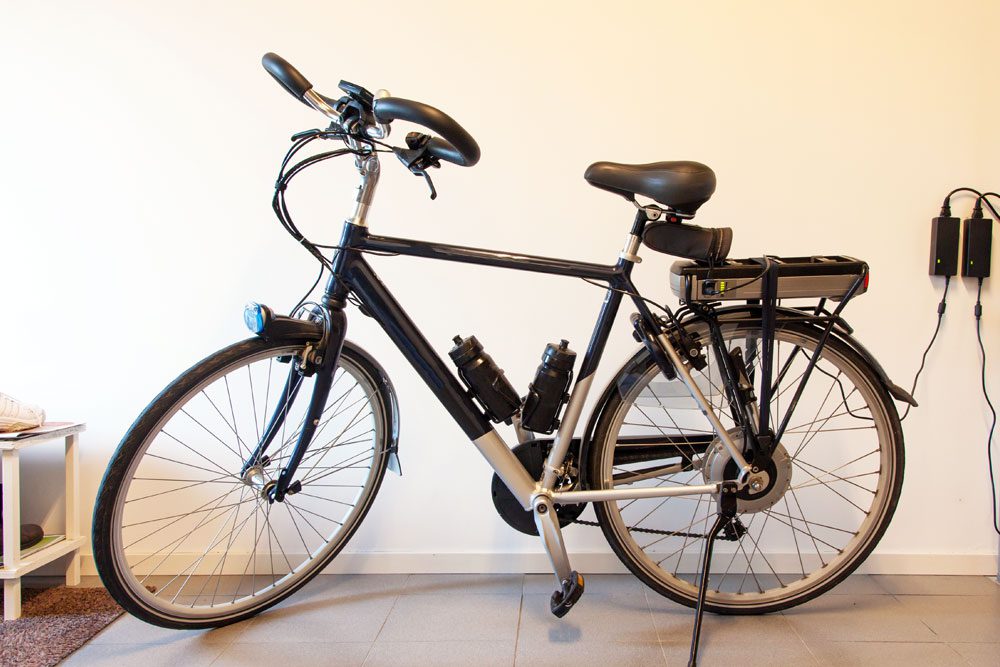
A Guide to Lithium-Ion Battery Safety for Condo Associations and Their Unit Owners
Making sure the residents of your building are equipped with safety information to keep themselves, their belongings, and their neighbors safe is one of your top responsibilities. In today’s technology-centered world, that includes knowing the safety risks posed by lithium-ion batteries and sharing tips with condo unit owners on how they can minimize those risks.
In 2022, lithium-ion batteries caused 12 fires in Massachusetts alone. While that might seem like a relatively small number, it’s more than double the number of fires caused by these batteries in 2019. And, as the number of devices that are powered by lithium-ion batteries grows, along with the number of people purchasing these devices, there’s a good chance that the number of fires and explosions that can be traced back to lithium-ion batteries will also continue to increase.
At Gilbert, when working with condo associations, one of our main goals is to provide advice that can help prevent situations that may result in damage to the building or injuries to its residents. Lithium-ion batteries have the potential to cause both. Given how many items use these batteries for power—including e-bikes, scooters, smart phones, tablets, and laptops, among other things—we’re certain many of your residents have at least one of these devices in their units. So, it’s important that you know how to properly charge and dispose of lithium-ion batteries in order to share the information with your condo residents.
What dangers are associated with lithium-ion batteries that condo residents should know about?
There are three primary concerns that can arise with lithium-ion batteries. The first, and most common, is the threat that a lithium-ion battery can catch fire. The second, but more rare, concern is the danger that a battery may explode. And third, but no less alarming, is the potential that people may be exposed to chemical and toxic fumes given off by these batteries if they do catch fire or explode.
What might cause a lithium-ion battery-related fire in a condo or other building?
When a resident uses a charger that isn’t approved by the device manufacturer or overcharges the device, leading it to overheat, there is the potential for a fire to start. A fire may also break out if a flaw with the battery is introduced during the manufacturing process or if the battery becomes damaged after getting wet, hit, dropped, or crushed.
What might make a lithium-ion battery explode and cause damage to a condo unit or building?
The same reasons why a lithium-ion battery could catch fire are the same reasons why it could explode. Improper charging of the battery, overheating, damage, and manufacturing defects are all potential causes.
How might condo residents end up exposed to chemical or toxic fumes from a lithium-ion battery?
If a lithium-ion battery were to catch fire or explode, it could release unsafe chemicals into the air. These chemicals could then land on anything that is around the battery, such as a condo unit owner’s personal belongings. Smoke from a fire or explosion can also release toxic fumes, which can spread all over the condo property. These chemicals and fumes can cause people in the building to experience nose and throat irritation, headaches, and more.
How can condo residents safely charge devices powered by lithium-ion batteries?
The following are some general charging safety tips that typically apply to devices that are powered by lithium-ion batteries:
- Keep chargers away from anything flammable.
- Do not charge the battery for extended periods of time or overnight.
- Only use the charger that comes with the device or one approved by the manufacturer.
- Do not charge a device in a hot environment or in direct sunlight.
- When the battery is fully charged, unplug it from the charger.
- Do not charge lithium-ion battery-powered devices, like phones or tablets, on soft surfaces such as beds or sofas.
Following these tips should help mitigate the chances that residents will be exposed to fires, explosions, and unsafe chemicals and fumes that can be attributable to lithium-ion batteries. That being said, it’s absolutely critical to encourage your condo residents to read the manual that comes with their specific device, as it may have distinct directions for handling, charging, and storing the battery.
How can a condo unit owner tell if a lithium-ion battery might be damaged?
It’s important that your residents frequently inspect the lithium-ion batteries being used in their devices for warning signs that something may be wrong. Indications that a lithium-ion battery is damaged include the following:
- The battery is bulging, swelling, or cracking.
- An unpleasant odor is coming from the battery.
- The lithium-ion battery device is emitting odd noises while not in use.
- The battery has changed color or shape.
One or more of these developments could mean the battery is overheated or overcharged, which, again, could lead to a fire or an explosion and to the spread of harmful chemicals and fumes. Condo unit owners will want to call emergency services if they notice a lithium-ion battery exhibiting any of these characteristics, as it could be dangerous to try to deal with the damaged battery themselves.
How should condo residents dispose of their lithium-ion batteries?
Whether a lithium-ion battery is being tossed due to damage or because it’s reached the end of its useful life, proper disposal of these powerful batteries is essential. Lithium-ion batteries that end up in a landfill or dumpster could catch fire and create a serious problem. As a result, these batteries are not suitable for the regular trash and should always be recycled in containers specifically designed for lithium-ion battery collection. You can make things as easy as possible on your residents by letting them know where the nearest recycling center is to your condo building and sharing best practices from the U.S. Environmental Protection Agency, such as putting electrical tape on the battery or placing it in its own plastic bag before bringing it to a recycling facility.
How can a condo association spread the word to unit owners about lithium-ion battery risks and safety tips?
You can help reduce the possibility of damages and injuries from these batteries by sharing this blog with your residents or by typing up a list of safety tips to put in everyone’s mailbox. You may also want to present safety information to condo unit owners at a condo association meeting. Another suggestion is to email resources from trusted organizations, like the National Fire Prevention Association (NFPA), to all condo residents. The NFPA website has all sorts of safety information regarding lithium-ion batteries, from phones and tablets to e-bikes and scooters.
If a lithium-ion battery-related incident does happen, Gilbert has your back.
At Gilbert, we’re committed to helping condo associations mitigate the safety risks posed by lithium-ion batteries and other situations. Hopefully you never have to deal with the potential dangers of lithium-ion batteries, but just in case the unthinkable does happen, it’s best to be prepared by having the right insurance in place. Let us help you determine which master condo insurance solutions are right for your property. We can also guide your condo residents toward insurance options designed to help protect them and their belongings from potential hazards. To learn more about how Gilbert can help condo associations like yours find the right coverage, give us a call today.
